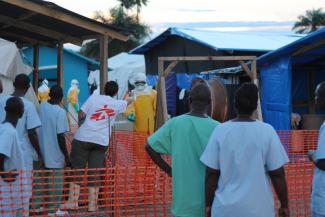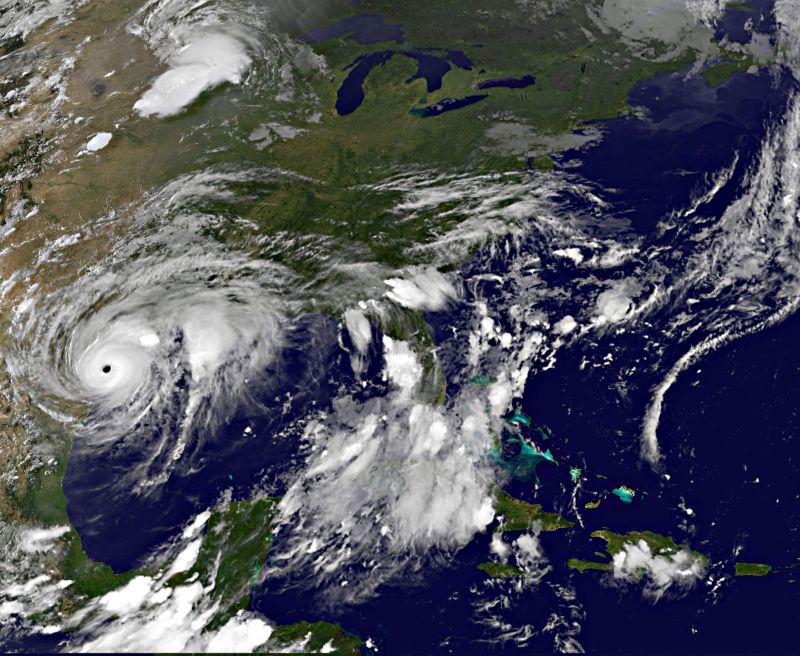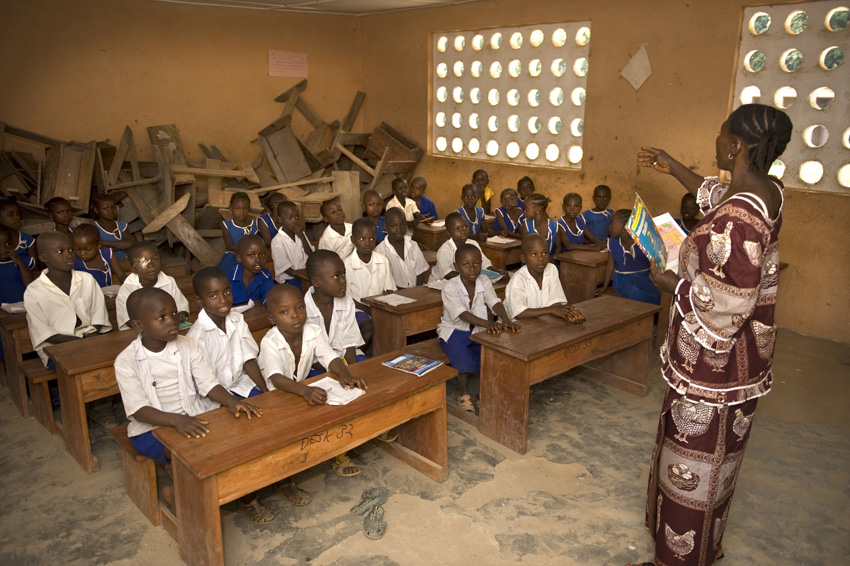International NGOs
Experts, advocates and activists

The cosmopolitan camp sees INGOs as important and constructive players because of their potential for challenging conventional power politics at an international level. In support of this view, cosmopolitans point out examples of INGO success in influencing political processes and the actions of other players. INGOs have even managed to exert influence in areas of “high politics” which affect national sovereignty.
In 1998 alone, several such successes were recorded. For example, the International Campaign to Ban Landmines, which had been formed in 1992, helped to bring about the Ottawa Convention. By now, the Convention has been signed by 162 nations. INGOs were also involved in drafting the Rome Statute, the international treaty that established the International Criminal Court. The negotiations were conducted by government representatives, but they unofficially relied on information and advice from INGOs (Deitelhoff, 2006). In the same year, widespread INGO protests forced Shell, the transnational oil corporation, to abandon its plans to dump the Brent Spar platform at sea. Instead, the corporate giant had to dismantle and dispose of the facility on shore. That was among others the result of years of headline-grabbing campaigning led by Greenpeace.
During the Cold War, international politics was more or less exclusively a matter for governments. Today, the media routinely report when INGOs complain about human-rights violations in various countries, when INGOs campaign for the compliance with labour standards in the global textile industry or when INGOs provide humanitarian relief after environmental disasters.
INGOs are seen as a legitimising force in the global arena. This is so because they do not pursue national interests but are potentially advocates for affected groups worldwide. They put specific interests and issues on the agenda of international organisations. They raise awareness for important topics and feed them into the political process.
Over the past decade, however, a more critical view of INGOs has been gaining ground. Critics point out the limits of INGO influence (Dany, 2013) and raise questions about the organisations’ own legitimacy (Steffek/Hahn, 2010). Unlike governments, INGOs are not elected, so they lack a democratic mandate for taking decisions that are mandatory for others. Because of a north-south divide which is evident in INGO involvement in international negotiations, their legitimising effect on international policy is questionable. INGO involvement from the global south tends to be exceptional, whereas INGOs from the global north often claim to speak for developing countries.
Sometimes, INGOs, however, take binding decisions – not for society as a whole, perhaps, but certainly for specific groups. Prime cases in point are organisations that implement aid programmes and determine who receives support and who does not for example. Moreover, some constituencies that are championed by INGOs in international contexts feel misunderstood and poorly represented. Examples include child labourers or sex workers (Hahn/Holzscheiter, 2013). For good reason, INGOs are thus criticised for cementing rather than breaking up international power structures (Sending/Neumann, 2006; also note Tony Tujan on p. 18 f. of this issue).
A heterogeneous field
In the past 40 years, the number of INGOs has increased from around 2,000 to more than 7,000. It is difficult to say exactly how many there are however. INGOs are not entities of international law, and there is no generally accepted definition of what an INGO is.
Political scientists usually regard non-governmental organisations as organisations that are not‑for‑profit and not dependent on government funding. Accordingly, INGOs are neither state agencies nor market-driven actors. They operate in the so-called third sector that comprises civil society (Frantz, 2010: 191). International NGOs have members in at least three countries and work transnationally. They are distinct from social movements in that they have a fixed organisational structure. However, many INGOs owe their existence to social movements. Greenpeace, for example, emerged from the environmental movement.
In reality, however, there are numerous examples of organisations that are generally recognised as INGOs even though they only partially meet the criteria listed above. Many humanitarian INGOs, for example, get government funds for their programmes and even run programmes on behalf of governments. Therefore, they cannot be said to be fully independent.
The question of what constitutes an INGO becomes politically relevant when it determines eligibility for certain rights, for instance in the UN context. The UN Economic and Social Council (ECOSOC) keeps a register of NGOs that are entitled to participate in UN conferences and preparatory meetings. However, the UN also accredits private-sector organisations as INGOs. The World Nuclear Association is an example, it represents the nuclear industry.
Diverse roles
INGOs play various roles in global politics. Their scope for influence varies as do their legitimacy problems. INGO members serve as experts, diplomats, advocates for specific issues or groups, protesters and activists. In their role as experts and diplomats, they cooperate closely with governments. INGOs often have extensive expertise in a particular field and thus provide valuable advice to other actors that lack such relevant know-how. Some small countries, for example, appreciate INGO consultants on climate policy.
INGOs sometimes even represent governments. During the 2005 UN World Summit on the Information Society, for instance, INGO and business representatives were invited to participate in government delegations because of their knowledge of internet governance. During the West African Ebola epidemic in 2014, it became clear that the INGO Médecins Sans Frontières was particularly well endowed with the expertise and human resources needed to set up and run treatment centres, so it assumed a major role in health care.
In diplomacy, INGOs are often active behind the scenes, participating, for example, in the drafting of international rules and norms. Especially when it comes to establishing standards for transnational corporations, INGOs are often invited based on the idea that they can and should ensure that civil-society demands are taken into consideration. For the Forest Stewardship Council (FSC), for instance, INGO representatives contributed to formulating international standards concerning sustainable forest management and to the development of a certification system for a sustainable forest and product chain (chain of custody). Contributions of this kind are useful for voluntary codes of conduct. However, INGOs also contribute to the continuous development of international law.
All these activities supplement the INGOs’ role as international advocates of the world’s weak, vulnerable and underrepresented people. Environmental organisations work to protect endangered wildlife, for example, and human-rights organisations support the Muslim Rohingya minority of Myanmar. Often, INGOs use forms of protest that attract media attention in order to generate public interest and put pressure on governments or business.
INGOs use their expertise and special credibility to inform societies and governments about particular issues and raise awareness for specific problems. In 1985, for instance, the organisation International Physicians for the Prevention of Nuclear War was awarded the Nobel Peace Prize for “spreading authoritative information and (…) creating an awareness of the catastrophic consequences of atomic warfare” (Nobel Foundation, 1985).
Competition and rivalry
INGOs face growing competition among one another, and each one must make sure it stays viable. The consequences may be serious, even if unintended. After the genocide in Rwanda in 1994, for example, INGOs working in refugee camps in Goma realised that these camps not only provided shelter to victims, but also served as meeting place for perpetrators of violence. Nonetheless, many INGOs preferred to continue their operations and kept quiet. Only a few withdrew, foregoing a big opportunity to stay in the business of helping refugees (Terry, 2002). The desire to stay despite evident problems and to cover up negative impacts of their work was partly due to the knowledge that other INGOs would quickly take their place and pocket donor money (Cooley/Ron, 2002).
The Rwandan tragedy proved that the work of INGOs – however well-intentioned – may have negative consequences. It also showed that INGO action is influenced by the institutional setting. Humanitarian INGOs, in particular, increasingly attempt to address problems by drafting general rules of conduct which are meant to strengthen their accountability not only to donors, but also to affected communities as well as the governments of the countries concerned (Lewis, 2014).
Charlotte Dany is an assistant professor at the Institute for Political Science of Goethe University in Frankfurt.
c.dany@soz.uni-frankfurt.de
Andrea Schneiker is a junior professor for political science specialising in relations at the University of Siegen.
schneiker@sozialwissenschaften.uni-siegen.de
Literature:
Cooley, A., and Ron, J., 2002: The NGO scramble. Organizational insecurity and the political economy of transnational action. International Security 27(1), pp. 5-39.
Dany, C., 2013: Global governance and NGO participation. Shaping the information society in the United Nations. London/New York: Routledge.
Deitelhoff, N., 2006: Überzeugung in der Politik – Grundzüge einer Diskurstheorie internationalen Regierens. (Persuasion in politics: outline of a discourse theory of international governance, only in German.) Berlin: suhrkamp.
Frantz, C., 2010: Nichtregierungsorganisationen (NGOs) als internationale Akteure (Non-governmental organisations (NGOs) as international actors, only in German). In: Christiane Frantz und Klaus Schubert (Hrsg.): Einführung in die Politikwissenschaft (Introduction to political science), Münster u.a.: Lit Verlag, pp. 190-199.
Hahn, K., and Holzscheiter, A., 2013: The ambivalence of advocacy: Representation and contestation in global NGO advocacy for child workers and sex workers. Global Society, 27:4, pp. 497-520.
Lewis, D., 2014: Non-governmental organizations, management and development. 3rd edition, London/New York: Routledge.
Nobel Foundation, 1985: The Nobel Peace Prize for 1985. http://www.nobelprize.org/nobel_prizes/peace/laureates/1985/press.html, 12.05.2015.
Sending, O. J., and Neumann, I. B., 2006: Governance to governmentality: Analyzing NGOs, states, and power. International Studies Quarterly 50(3), pp. 651-672.
Steffek, J., and Hahn, K., (ed.), 2010: Evaluating transnational NGOs. Legitimacy, accountability, representation. Houndmills: Palgrave.
Terry, F., 2002: Condemned to repeat? The paradox of humanitarian action. Ithaca/London: Cornell University Press.











